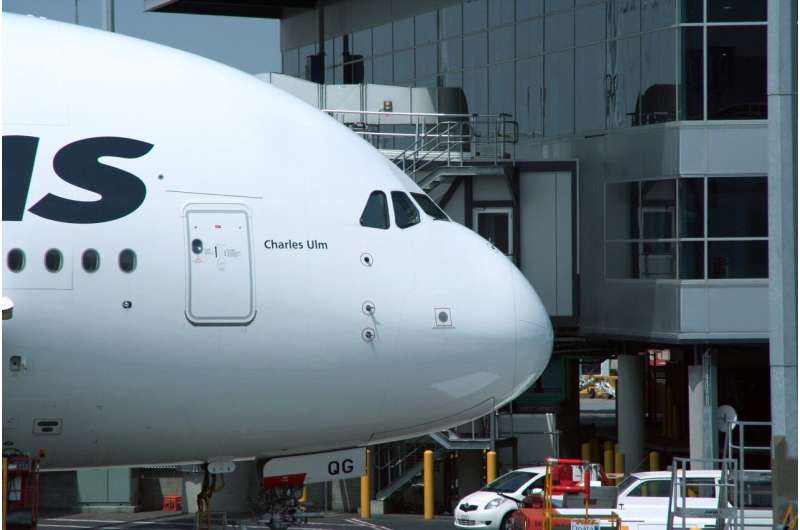

Qantas is being taken to Australia’s consumer regulator over its claim it is committed to achieving net zero emissions by 2050.
The Environmental Defenders Office and the advocacy group Climate Integrity say the claim is “not backed up by credible targets or substantiating strategies” making it potentially misleading and in breach of the Australian Consumer Law.
The Australian Competition and Consumer Commission has yet to decide whether to investigate the complaint. Qantas says it has offered to work closely with Climate Integrity and has reached out to the Commission.
The complaint follows a ruling by a Dutch Court earlier this year that the airline KLM had misled consumers by creating the false impression it was sustainable.
The win has spurred the European Commission to write to 20 airlines identifying potentially misleading claims and inviting them to bring their practices in line.
Of most concern to the European regulators are claims the carbon emissions caused by flights can be offset by climate projects and the use of sustainable fuels, to which the consumers can contribute by paying additional fees.
Carbon assurance assesses claims ahead of time
These kinds of complaints would be much easier for airlines (and other companies) to deal with if they had submitted themselves to a process known as carbon assurance ahead of time.
Usually entered into voluntarily, and conducted by an independent assessor in accordance with an international standard, the process verifies the accuracy, transparency, and credibility of an organization’s carbon emissions claims.
My own research with Linh Nguyen, just published in Finance Research Letters, finds firms with high carbon assurance scores are more likely to obtain more trade credit from their suppliers.
Europe and Australia are moving towards making carbon assurance mandatory for large corporations.
Few firms submit themselves to it
A survey by KPMG International finds that while nearly all of the world’s 250 largest firms report on the sustainability of their operations, only two-thirds submit themselves to carbon assurance.
Another survey of 5,183 companies from 42 countries that publish emissions data finds half don’t engage a carbon assuror.
This could be because they are afraid of what the assuror will find.
An international survey of 750 companies that sought some level of external assurance found just 14% received a reasonable assurance.
Many firms aren’t ready
Assurors, and the skills within the organization to handle the process are hard to find. While international standards are in place, there isn’t yet a professional or regulatory body to certify assurors.
The Australian government intends to make assurance reports for the Scope 1 and Scope 2 emissions of large firms mandatory from July 2026.
Scope 1 and scope 2 emissions are the direct and indirect emissions of the corporation itself.
The government intends to make Scope 3 emissions (those in other parts of the corporation’s supply and distribution chain) mandatory from July 2030.
It will be important to get the systems in place.
While what the firms report will matter a lot, what will matter almost as much is an assurance we can believe what they report.
Provided by
The Conversation
This article is republished from The Conversation under a Creative Commons license. Read the original article.![]()
Citation:
Claims that Qantas is greenwashing build a case for carbon assurance: Here’s what it is (2024, October 16)
retrieved 16 October 2024
from https://phys.org/news/2024-10-qantas-greenwashing-case-carbon.html
This document is subject to copyright. Apart from any fair dealing for the purpose of private study or research, no
part may be reproduced without the written permission. The content is provided for information purposes only.